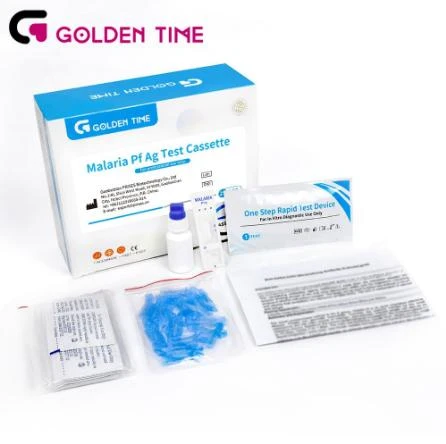
More Language
Untranslated
Jan . 10, 2025 12:24 Back to list
covid-19 (sars-cov-2) antigen diagnostic test kit
In recent times, accurately detecting COVID-19 infection and limiting its spread has pivoted significantly around the accessibility and reliability of antigen tests. Being on the frontlines of pandemic management, antigen tests offer a swift, if not instantaneous, insight into a person's infection status, especially when the world grapples with evolving viral strains. From the collective pool of modern testing methodologies, antigen tests stand out for several compelling reasons.
From an authoritative point of view, integrating antigen tests into the broader fabric of public health intersects directly with large-scale epidemiological surveillance and vaccination efficacy assessment. By aiding in the rapid identification of infected individuals, these tests empower health professionals to preemptively trace contacts and isolate cases, thus preventing explosion into community spread. This capacity for immediate response aligns with governmental strategies aimed at achieving herd immunity and maintaining societal functions. Leveraging the practical experience of using such tests, one gleans insights beyond the metric outputs. Patients and healthcare workers alike have observed the ease of administration — primarily involving simple nasal or throat swabs, manageable even in domiciliary settings without specialized training. This simplicity, coupled with the ability to interpret outcomes visually without digital or lab equipment, democratizes access to COVID-19 testing even in resource-constrained geographies. In advancing the conversation around antigen tests, their importance grows with the virus's evolution. While mutations challenge various testing methods’ accuracies, antigen tests remain invaluable, adapting to detect prevalent variants, thereby ensuring continued relevance and utility. They are a testament to the coronation of experience, expertise, authoritativeness, and trustworthiness in modern healthcare products and public reliance alike. In future discourse, focusing on synergizing antigen tests with other diagnostic tools, public health strategies, and individual health management plans will fortify the global fight against this pandemic. Their role extends beyond mere detection, acting as a crucial instrument in educating the populace on health practices and preparing us for any unprecedented health challenges that the future may hold.


From an authoritative point of view, integrating antigen tests into the broader fabric of public health intersects directly with large-scale epidemiological surveillance and vaccination efficacy assessment. By aiding in the rapid identification of infected individuals, these tests empower health professionals to preemptively trace contacts and isolate cases, thus preventing explosion into community spread. This capacity for immediate response aligns with governmental strategies aimed at achieving herd immunity and maintaining societal functions. Leveraging the practical experience of using such tests, one gleans insights beyond the metric outputs. Patients and healthcare workers alike have observed the ease of administration — primarily involving simple nasal or throat swabs, manageable even in domiciliary settings without specialized training. This simplicity, coupled with the ability to interpret outcomes visually without digital or lab equipment, democratizes access to COVID-19 testing even in resource-constrained geographies. In advancing the conversation around antigen tests, their importance grows with the virus's evolution. While mutations challenge various testing methods’ accuracies, antigen tests remain invaluable, adapting to detect prevalent variants, thereby ensuring continued relevance and utility. They are a testament to the coronation of experience, expertise, authoritativeness, and trustworthiness in modern healthcare products and public reliance alike. In future discourse, focusing on synergizing antigen tests with other diagnostic tools, public health strategies, and individual health management plans will fortify the global fight against this pandemic. Their role extends beyond mere detection, acting as a crucial instrument in educating the populace on health practices and preparing us for any unprecedented health challenges that the future may hold.
Latest news
-
Reliable Early Pregnancy Test Kit Supplier - Multi Plastic Cassette Options
NewsJul.30,2025
-
Transferrin Rapid Test Cassette – Reliable Tumor Marker Detection
NewsJul.29,2025
-
Accurate Follicle Stimulating Hormone Test Kit | Rapid Reliable Results
NewsJul.29,2025
-
High Accuracy LH Ovulation Test Kit - Digital Results & Wholesale Options
NewsJul.29,2025
-
HbsAg Blood Rapid Test Kit for Fast & Accurate Hepatitis B Detection
NewsJul.28,2025
-
Sterile Urine Cup for Safe & Easy Collection | High-Quality Specimen Cups
NewsJul.28,2025
